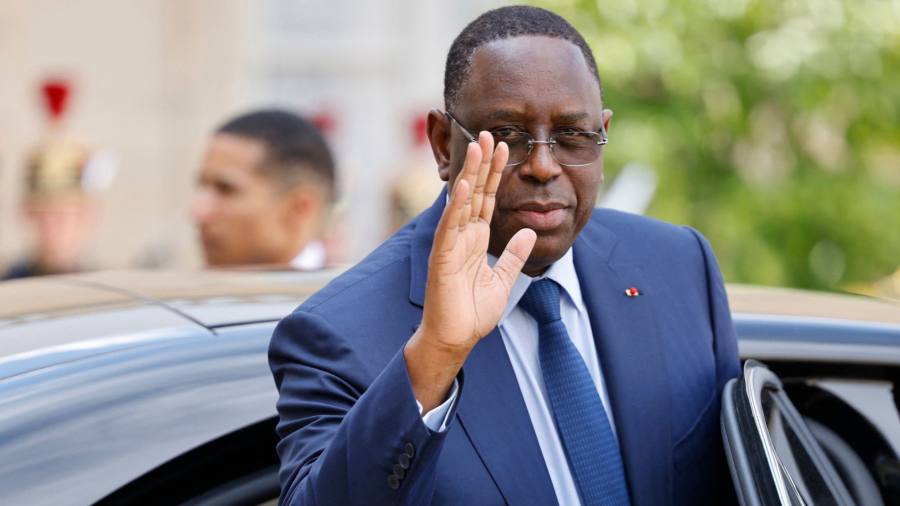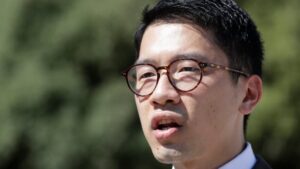
Receive free Senegal updates
We’ll send you a myFT Daily Digest email rounding up the latest Senegal news every morning.
Incumbent Macky Sall has announced he will not run for a third term in Senegal’s presidential election next year, dousing tensions and ending months of speculation.
In a widely anticipated speech on Monday night, Sall said his decision not to run was “long and carefully considered”.
“My decision is not to be a candidate in the 2024 presidential election, even though the constitution allows me to run,” Sall said. “Senegal exceeds my person and it is full of leaders who can manage it.”
For months many had speculated over whether Sall, 61, would seek another term in office. Analysts and critics said such a step would have threatened the integrity of the west African nation’s constitution, which limits presidents to two terms.
Protests and riots have broken out in recent months, with uncertainty over Sall’s intentions and a crackdown on supporters of opposition leader Ousmane Sonko stoking tensions. Senegal is normally one of the region’s thriving democracies.
Sall was first elected in 2012 when he defeated Abdoulaye Wade, the incumbent who was running for a controversial third term. In 2016, voters also approved a constitutional change proposed by Sall to shorten terms from seven to five years.
Sall served seven years in his first term and was re-elected in 2019. His allies began arguing last year that the 2016 referendum reset the clock on his time in office and made him eligible to run as a candidate again next year.
Sall indicated he could run again when he told the French magazine L’Express in March that “legally speaking, the debate has been settled for a long time”. But he admitted a “political debate” was being had over whether he could run.
On Sunday Sonko, a firebrand widely seen as the biggest challenger to the ruling Alliance for the Republic party, called for protests if Sall were to decide to run.
“Come out to confront the Macky Sall regime and say that it is not up to him to choose the candidates that will face each other in the next presidential election,” he said.
Sonko added: “If we have to put up a fight, it must be definitive. I call on all the Senegalese people to stand up as one and come out en masse and this time put an end to this criminal regime.”
Sall’s decision leaves his party shopping for a candidate, with whoever emerges possibly facing Sonko.
However, Sonko’s status as a candidate is in doubt after he was sentenced last month to two years in prison for “corrupting youth”. He was acquitted on more serious charges of rape and making death threats against an employee of a massage business who had accused him of assaulting her.
The 48-year-old former tax inspector has not been arrested but the conviction complicates his bid to contest the election since electoral law bars those with criminal convictions from seeking political posts.
Sonko is also appealing against a $330,000 fine and a six-month suspended sentence after being found guilty in March of libel against the tourism minister.
Sonko and his supporters say his legal woes are a weaponisation of the justice system to sideline him.
At least 16 people were killed in protests that began after Sonko was convicted. Rights groups accused security forces of a violent crackdown. At least 12 people also died during protests that lasted several days after Sonko was first arrested in relation to the case in 2021.

